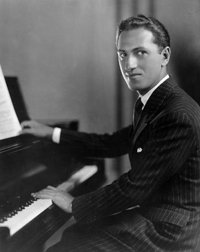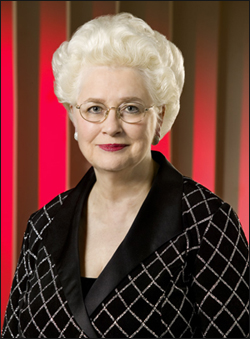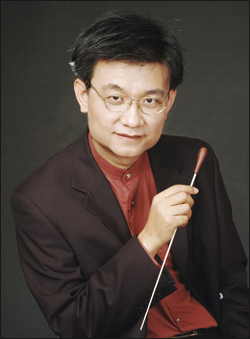 |
|||||||||||||||||||||||||||||
 |
|
||||||||||||||||||||||||||||
 |
|||||||||||||||||||||||||||||
|
|
|||||||||||||||||||||||||||||
 | ||||||
 | ||||||
|
The
WAO V will perform at the Closing Ceremony of the 64th Coupe Mondiale
Shanghai Star Stage - Theater of the Shanghai Mass Art Center | ||||||
 | ||||||
| Following
the very successful inaugural World Accordion Orchestra debut performance
at the Coupe Mondiale 2007 under the Musical Direction of Joan C. Sommers,
the magnificent staging of the CIA World Accordion Orchestra (WAO) II
in Scotland in 2008, WAO III in Auckland, New Zealand and WAO IV in Varaždin,
Croatia, we are delighted to announce that the World Accordion Orchestra
V will be held in Shanghai, China as part of our 64th Coupe Mondiale Festival. We would like to welcome you to this exciting International accordion event and encourage your participation in this historic Fifth Anniversary of the 'World Accordion Orchestra'. | ||||||

| ||||||
| ||||||
 Joan
C. Sommers (Founder - CIA World Accordion Orchestra) was awarded
the title of Professor Emerita upon her retirement from the University
of Missouri – Kansas City Conservatory of Music (USA), where she
established and taught the accordion degree program for forty years. She
has arranged innumerable works for the accordion orchestra over many years,
often for the UMKC Accordion Orchestra which, under her direction, competed
in and won more First Prizes in Virtuoso Accordion Orchestra Competitions
than any other similar American group. Joan
C. Sommers (Founder - CIA World Accordion Orchestra) was awarded
the title of Professor Emerita upon her retirement from the University
of Missouri – Kansas City Conservatory of Music (USA), where she
established and taught the accordion degree program for forty years. She
has arranged innumerable works for the accordion orchestra over many years,
often for the UMKC Accordion Orchestra which, under her direction, competed
in and won more First Prizes in Virtuoso Accordion Orchestra Competitions
than any other similar American group. In both 1955 and 1956 she earned the right to represent the USA in the Coupe Mondiale and, although she didn’t win, it was those experiences which opened her eyes to the tremendous opportunities available to accordionists; perhaps it also fixed her life-long interest in worldwide accordion activities. Most recently, she celebrated the 50th Anniversary of her UMKC Accordion Orchestra when they presented their 50th Gala Concert at the University. She has held positions in several music organisations, including the Accordionists & Teachers Guild International (ATG) and the Confédération Internationale des Accordéonistes (CIA – IMC-UNESCO). Professor Sommers continues to adjudicate, coach soloists, prepare accordion orchestra arrangements, and conduct accordion orchestras regularly, and now proudly serves as a CIA Vice President. | ||||||
 Chen
Weiliang was born in Beijing in 1970. Influenced by his family,
he learned to play accordion when he was young and showed great ability.
Since then, he has participated in many competitions, and his performances
attract the whole accordion field. Chen
Weiliang was born in Beijing in 1970. Influenced by his family,
he learned to play accordion when he was young and showed great ability.
Since then, he has participated in many competitions, and his performances
attract the whole accordion field.Mr. Chen has studied the art of accordion ensemble since 1998, and his groups have won in Ensemble Group of the Beijing International Accordion Fair on four occasions. Furthermore, he won the third rank with the Weiliang Accordion Ensemble Group in Ensemble Group of the Castelfidardo International Accordion Fair in Italy. Mr. Chen has been the conductor of the Beijing Children’s Palace Baidi Accordion Ensemble Group since 2004. He has held many concerts in Beijing, Shanghai, Japan and France. After an invitation from the American Accordion Association, the group performed a concert at the 60th Washington International Accordion Competition which made great waves at the Kennedy Center. In August 2008, the ensemble group held a special concert in the Concert Hall of China’s National Center for the Performing Arts. | ||||||

| ||||||
| ||||||

| ||||||
| Spring Festival Overture by Li Huanzhi, arranged by Li Rui and Chen Weiliang | ||||||
| Spring
Festival Overture is a Chinese orchestral work composed by Li Huanzhi
between 1955 and 1956, depicting the scene when people in the Shanbei
region were celebrating the Chinese New Year (Spring Festival). The tune
is widely heard primarily in Mainland China, where it appears frequently
in school music textbooks, as well as being played on various festive
occasions. In 2007 the work was selected to be carried and broadcast into
space on China's first lunar probe. Li Huanzhi (January 2, 1919 - March 19, 2000) (Family name is Li, First name is Huanzhi) was born in Hong Kong, his ancestors came from Jinjiang City, Quanzhou, Fujian, and his mother was Taiwanese. Li studied in several primary and middle schools in Hong Kong, Xiamen, and Quanzhou from 1925 to 1935. In 1936 he entered the National Music College in Shanghai to learn harmony from Xiao Youmei. In 1938, Li went to Yan'an, where he studied at the Music Department of Lu Xun Arts College. After completing the courses, he later studied composing and conducting with Xian Xinghai. Following his graduation he remained there as a faculty member. After the Second Sino-Japanese War, Li went to Zhangjiakou to take the Chair of the Music Department of North China Associated University. Since the founding of the People's Republic of China, Li was appointed as the Master of Music working party of the Central Conservatory of Music, the Art Director of the Central Ensemble of Songs and Dances, the master of the China Central Chinese Orchestra, etc. In 1985, he was elected as the chairman of the Chinese Musicians' Association. He had three sons with his wife, Li Qun: Li Dakang, Li Xiaokang, and Li Yikang. Li Dakang is a professional DJ. Li Huanzhi passed away in Beijing on March 19th, 2000. | ||||||
| Jasmine - Trad. Chinese Folk Song, arranged by Li Rui and Chen Weiliang | ||||||
| China
is a vast country with a long history and diverse nationalities, and therefore
there are a great number of widespread ballads and folk songs. Among them,
Jasmine (Jasmine Flower) stands out for its beautiful and catchy tune.
It's so popular that nearly everyone can hum along. Jasmine Flower has been a hit across the country since ancient times. There may be some variations of the ballad, but the version popular in the lower reach of the south of the Yangtze River is the most typical and widely spread. The melodious, elegant and emotional tune is in praise of jasmine flowers, referring to the pure and true love between a man and a woman in an indirect way. Back in the Qianlong Period of the Qing Dynasty, the lyrics of Jasmine Flower was included in Zhuibaiqiu, an anthology of Chinese Operas published at that time. This fully demonstrates its long history. In 1804, John Barrow, the secretary of the first British ambassador to China, especially featured the score of Jasmine Flower in his work Travels in China. The ballad thus became the first Chinese folk song introduced overseas in the form of a publication and it soon became popular in Europe and South America as well as other places. In 1924, the world-renowned Opera master and Italian composer Puccini finished the draft of opera Turandot shortly before he lost his battle with cancer. Set in the Yuan-Dynasty of China, the Opera created a beautiful yet obdurate Princess named Turandot. Puccini made the tune of Jasmine Flower one of the main music elements of the Opera and adapted it into a female chorus, giving a Chinese flavor to the Chinese story completely composed and performed by foreigners. In 1926, the debut of the Opera was a great success in Italy. After that, the fragrance of the Chinese Folk Song 'Jasmine Flower' drifted to a wider area along with the popularity of the Classical Opera. | ||||||
| GERSHWIN! (A Medley) - George Gershwin, arranged by Joan Cochran Sommers | ||||||
 GERSHWIN!
(A Medley) is a quintessential collection of a few of the popular compositions
by the famous American pianist/composer, George Gershwin. They are heard
in various arrangements throughout the world. The pieces introduced in
this medley are: GERSHWIN!
(A Medley) is a quintessential collection of a few of the popular compositions
by the famous American pianist/composer, George Gershwin. They are heard
in various arrangements throughout the world. The pieces introduced in
this medley are:Rhapsody in Blue for Piano and Orchestra (1924) I Got Rhythm (1930) An American in Paris (1928) Swanee (1919) Strike Up The Band (1927) Somebody Loves Me (1924) Fascinating Rhythm (1924) I've Got a Crush on You (1928) Embraceable You (1928) The Man I Love (1924) S'Wonderful (1927) Someone to Watch Over Me (1926) The following statement made by George Gershwin (pictured right) probably gives an insight into his compositional style quite well. "Jazz I regard as an American folk-music; not the only one, but a very powerful one which is probably in the blood and feeling of the American people more than any other style of folk-music. I believe that it can be made the basis of serious symphonic works of lasting value." The first attempts to bridge the gap between "popular" and "classical" stemmed from the classical side. Jazz musicians for their part came more and more to adopt the procedures of serious music. This development culminated in the vogue of "symphonic jazz" associated with the band leader Paul Whiteman. On the historic concert given by Whiteman on Feb. 12, 1924 in New York he introduced the piece that was to carry the name of George Gershwin, then twenty-six, around the globe: the Rhapsody in Blue for Piano and Orchestra. The Brooklyn-born composer came out of the musical world of Broadway. Whereas serious composers used the jazz idiom with some degree of self-consciousness, it was his natural speech. After the tremendous success of Rhapsody in Blue, he then was determined to bridge the gap between Tin Pan Alley and Carnegie Hall; he achieved this in 1925 when he played his Concerto in F for Piano and Orchestra with the New York Symphony Orchestra. | ||||||

| ||||||
| World
Accordion Orchestra V - Shanghai, China Important Details for all Participants On behalf of the Accordion Association of Chinese Musicians Association (CAA) and the Shanghai Musicians Association, the sponsors of the 2011 Coupe Mondiale under the auspices of the Confédération Internationale des Accordéonistes, I would like to welcome you to this exciting international accordion event. Thank you for your participation in the World Accordion Orchestra V. This is now the fifth year in which such an accordion orchestra representing so many different countries has been organized at this 64th Coupe Mondiale. We are very proud to have you take part in it; we feel it will be one of the most enjoyable experiences in your musical life. Mandatory Coupe Mondiale and Festival Registration is required of each member in the orchestra. The CIA World Accordion Orchestra V will be conducted by two renowned international conductors, Joan C. Sommers (USA) and Chen Weiliang (China). Both have been associated with accordion orchestras over a long period of time, having written and arranged music for many accordion orchestras as well. It is a unique opportunity to have two highly successful conductors for this world orchestra. The three pieces have been been selected very carefully. It will be possible for this large orchestra to perform them well, both musically and technically, providing each individual player prepares his parts in a professional manner. This will allow the rehearsals to be devoted to overall performance matters regarding balance and interpretation details without spending needless minutes on measure that should have been mastered long before these crucial rehearsals. The repertoire will be the following: Spring Festival Overture by Li Huanzhi, Arranged by Li Rui and Chen Weiliang Jasmine - Traditional Chinese Folk Song, Arranged by Li Rui and Chen Weiliang Gershwin! (A Medley) by George Gershwin, Arranged by Joan Cochran Sommers The mandatory rehearsals will begin promptly at the announced times. The performance will be on the evening of Thursday, 6 October, during the spectacular closing ceremony held on the Shanghai Star Stage - Theater of the Shanghai Mass Art Center. Exact times for rehearsals and other orchestra details will be announced on this site as the information becomes available. Members are requested to be in their assigned chair and ready to play at those times. Seating charts will be available on which you will find your name and placement. All members of the orchestra must provide their own individual music. Please put your name on all music, your accordion and your accordion case; this will avert any misplacement or loss. Ladies, please do not bring purses onstage during the performance; leave them with someone while you perform. Everyone, please see that your mobile phones are turned off during both rehearsals and performance! The concert dress will be black shoes, black trousers or skirts, and black or white shirts or blouses. Gentlemen, please wear a tie and black socks. Coats will not be required. There will photographs taken and much publicity surrounding this concert and we will want the World Accordion Orchestra V to look as professional as possible. Every orchestra part is important whether it is numbered 1 or 4 and all players are equally responsible for the success of the performance. You may practice with the suggested metronome markings in mind but please remember that conductors may not always conduct exactly like a metronome; players must always watch the conductor and listen to all other players. Please use the correct switches/registers as printed on the music; never use a lower octave than is indicated. If you have a musette tuning or a particularly brightly tuned instrument, please do not use a register or switch which emphasizes that sound; try to blend your sound with those around you. The musette sound will not be appropriate in any of the selections being performed by the orchestra. Most, if not all, players will be assigned to play the same part for all three pieces; however, the part assignments and seating will be planned in a manner in which players will not move between selections, regardless of part assignments. Some parts may have been marked divisi. If you have such a part and have not been told specifically to play top or bottom, please decide with the person sitting next to you who is playing the same part who will play upper and who will play lower. Correct attention to dynamics and musical expression will be expected of this professional group of invited musicians, but you should bring a pencil to the rehearsals just in case you will need to make notes. If, for any reason, you have been assigned a part but will not be performing with the orchestra, you are urged to notify Joan Sommers at joansommers@kc.rr.com immediately because of the need for balance within the parts and for the seating arrangements. If you have questions about the music, the rehearsals or the concert, please do not hesitate to speak with your own conductor or to contact Joan Sommers at any time. Professor Sommers has agreed to serve as the contact person representing the Confédération. It has been arranged for a few instruments to be furnished to players traveling to Shanghai by air from distant countries. If you must borrow an instrument, please notify Joan Sommers of the type of instrument, piano accordion or which system of chromatic, that you will need. Every effort will be made to find a suitable instrument for you, if needed. Again, thank you for making the World Accordion Orchestra V an important part of your musical life and your trip to Shanghai, China for the 2011 Coupe Mondiale. Most sincerely, Joan Cochran Sommers On behalf of the organizing committee and the Confédération Internationale des Accordéonistes E-mail: joansommers@kc.rr.com | ||||||

|
|
|
||||||||
|
||||||||

